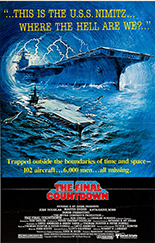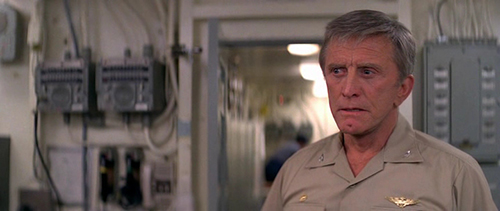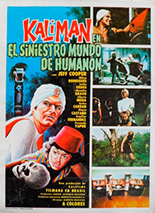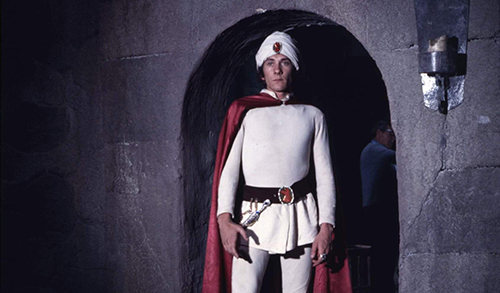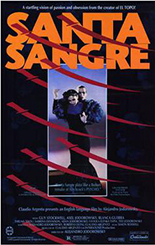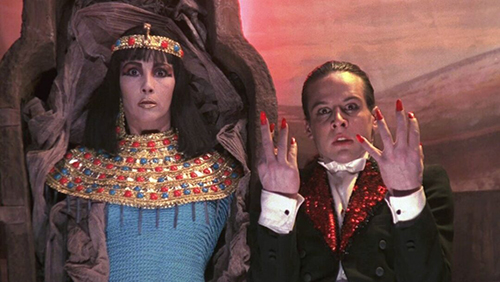
 Not to be confused with the utterly terrible take on the torch tune by David Lee Roth, Just a Gigolo is a highly satirical starring role for a surprisingly gaunt David Bowie, coming fresh off the science-fiction head-scratcher The Man Who Fell to Earth.
Not to be confused with the utterly terrible take on the torch tune by David Lee Roth, Just a Gigolo is a highly satirical starring role for a surprisingly gaunt David Bowie, coming fresh off the science-fiction head-scratcher The Man Who Fell to Earth.
Bowie is Paul von Przygodski, a young man who, like a lesser-known Candide, seems to fall in and out of life’s foibles, such as surviving a bombing in World War I, being mistaken for a French soldier in a hospital and so on and so forth. He seems to be the king of dumb luck.
He returns home with a porcine pal in tow, only to find Berlin in a truly crumbling state of its former self, filled with beggars and other miscreants. Still, Paul makes due with a job as a walking beer bottle, befriending an American actress (Sydne Rome) and his former commanding officer, Capt. Kraft (David Hemmings).
Eventually, she abandons him for possible stardom in America and Kraft pushes forward with his plans to rule Germany with a very Nazi-like movement. Heartbroken, Paul meets the Baroness (Marlene Dietrich) in a club and sets him on the path to becoming the world’s most unsatisfying gigolo, performing the title song on a darkened set.
As he works his way through a surprising Kim Novak and other ladies of the German upper crust — almost never finishing the job, mind you — things finally stop going Paul’s way, in the highly apropos finale, where, in death, he is held up as an unknowing scion to Germany’s growing fandom of Nazism.
Of course, the coke-addled Bowie is transcendent as Paul, even if the singer described the film as Elvis Presley’s 32 films “rolled into one” when it spectacularly failed at the box office. I truly don’t see it; I would have loved to have seen Elvis as a paid prostitute pleasing the women of pre-WWII Germany. Sadly, it was never meant to be.
What tends to hold the film back seems to be Hemmings’ velvet-glove direction. He seems unsure about the tone of the film, one second making it a dark comedy with serious underpinnings and the next, a bedroom farce with sexual overtones. It makes for a far more raucous experience than expected, but, then again, maybe that’s the point, mirroring Paul’s own wasted life. —Louis Fowler



